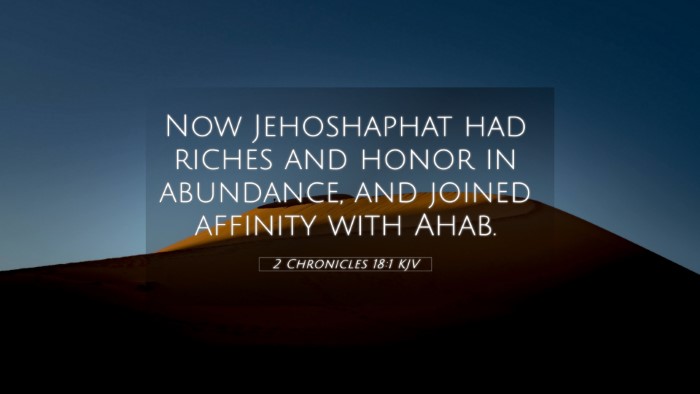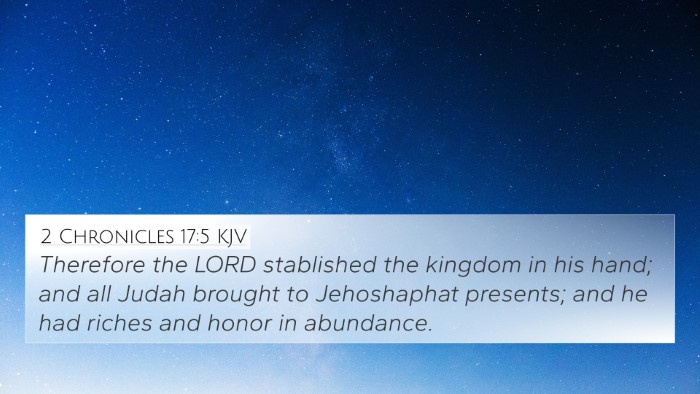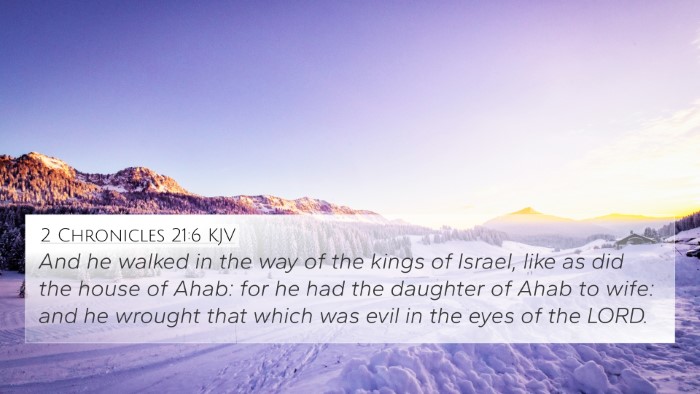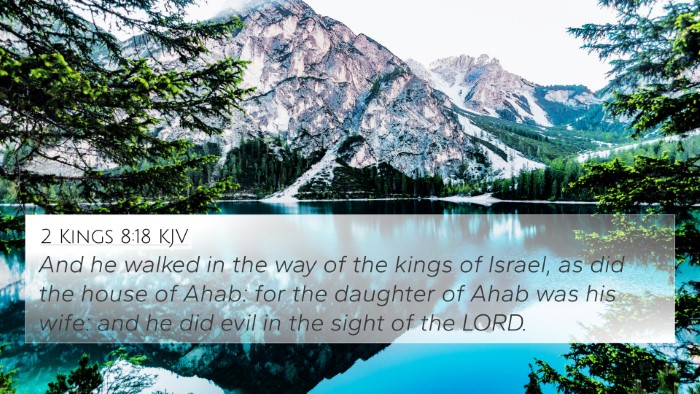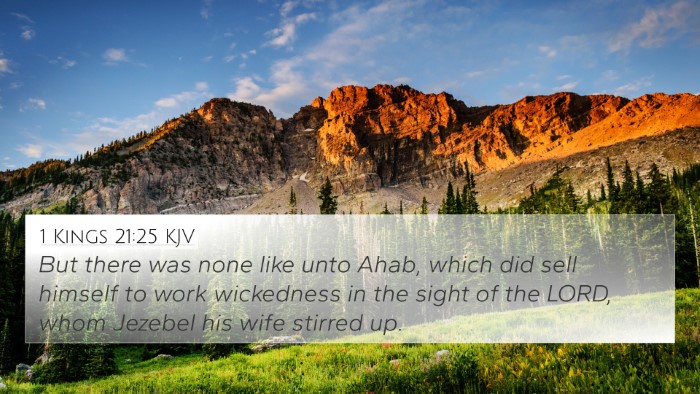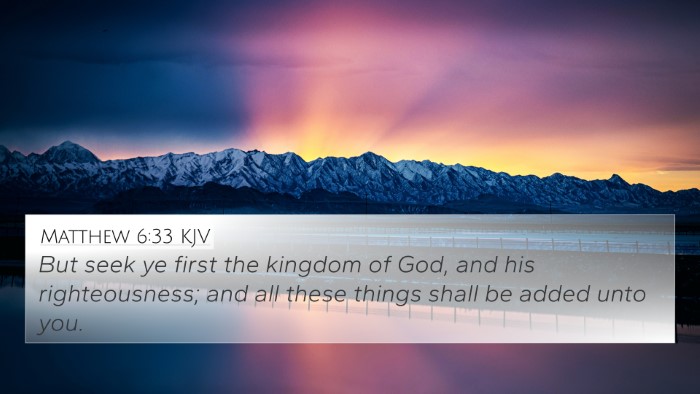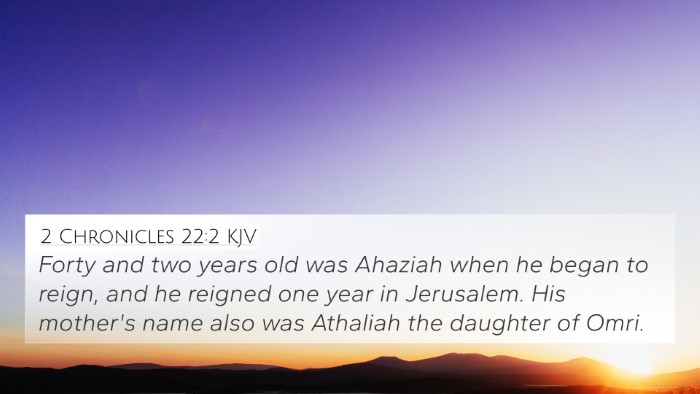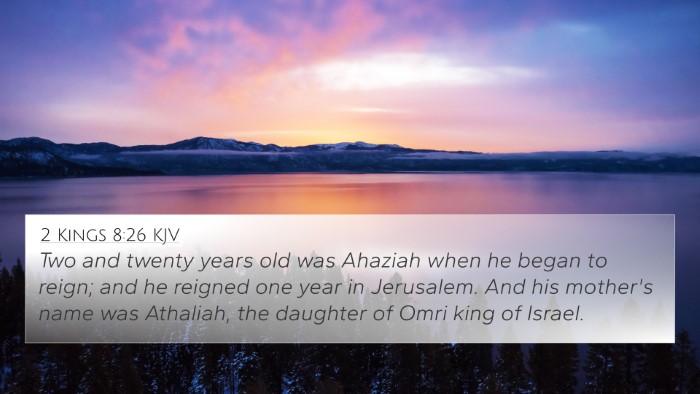Understanding 2 Chronicles 18:1
The verse 2 Chronicles 18:1 states, "Now Jehoshaphat had riches and honor in abundance, and joined affinity with Ahab." This passage offers deeper insights into the nature of alliances in the biblical narrative, illustrating King Jehoshaphat's political decisions and their implications on faithfulness to God.
Context of 2 Chronicles 18:1
This verse is situated within a narrative that discusses the reigns of the kings of Judah and Israel. Jehoshaphat, the king of Judah, known for his piety and reforms, here seeks political alliances which often lead to spiritual compromises. This raises the theme of the dangers that come with political unions.
Summary of Commentaries
Matthew Henry Commentary: Henry emphasizes that Jehoshaphat’s wealth did not secure his wisdom. Instead, it led him to ally with Ahab, which was cautionary given Ahab's notorious idolatry and unfaithfulness to God. This alliance not only denotes political strategy but also challenges the integrity of faith, hinting at the crossover between worldly wisdom and divine guidance.
Albert Barnes Notes: Barnes notes that this alliance was primarily for strategic reasons. The chapter illustrates Jehoshaphat's inclination to seek peace with Israel, but it also serves as a caution against alliances with those deviating from God’s commands. This verse serves as a significant moment reflecting on the nature of kingship and the choices leaders make.
Adam Clarke's Commentary: Clarke remarks upon Jehoshaphat's character, construing his alliance with Ahab as politically sound but spiritually perilous. He reinforces the idea that good intentions may lead to poor outcomes, particularly when one compromises their values and alliances with the wicked.
Thematic and Cross-Referenced Connections
This verse presents numerous connections to other passages in the Bible that highlight the themes of alliance, faithfulness, and consequences of leadership decisions.
- 1 Kings 22:2-4: This passage discusses the alliances formed between the kings of Israel and Judah.
- 2 Chronicles 20:35-37: It describes the outcomes of Jehoshaphat's alliance with Ahab, warning against seeking partnerships with the wicked.
- Proverbs 13:20: This verse stresses, "He who walks with wise men will be wise, but the companion of fools will be destroyed," reflecting the importance of wise alliances.
- Matthew 6:24: Jesus teaches about serving two masters, a warning about divided loyalties, applicable to Jehoshaphat’s situation.
- 1 Corinthians 15:33: "Bad company corrupts good character," reinforcing the potential dangers of alliances that compromise faith.
- James 4:4: This verse challenges believers against friendship with the world, aligning with Jehoshaphat's questionable choices.
- 2 Thessalonians 3:6: It warns believers against associating with those who lead them away from the truth, akin to Jehoshaphat’s risk.
Conclusion
2 Chronicles 18:1 serves as a vital lesson on the complexities of leadership, decisions, and alliances. In seeking to maintain peace, Jehoshaphat's choice to ally with Ahab demonstrates how political motivations can cloud spiritual discernment. Understanding these dynamics, and reflecting on the connections it has with other scripture, enables better application of biblical wisdom in modern challenges.
Further Study Tools
For deeper exploration into Bible verse cross-references, consider utilizing tools for Bible cross-referencing or a Bible concordance. These concise resources can guide you in identifying thematic connections and understanding the intricate relationships between different biblical texts.

